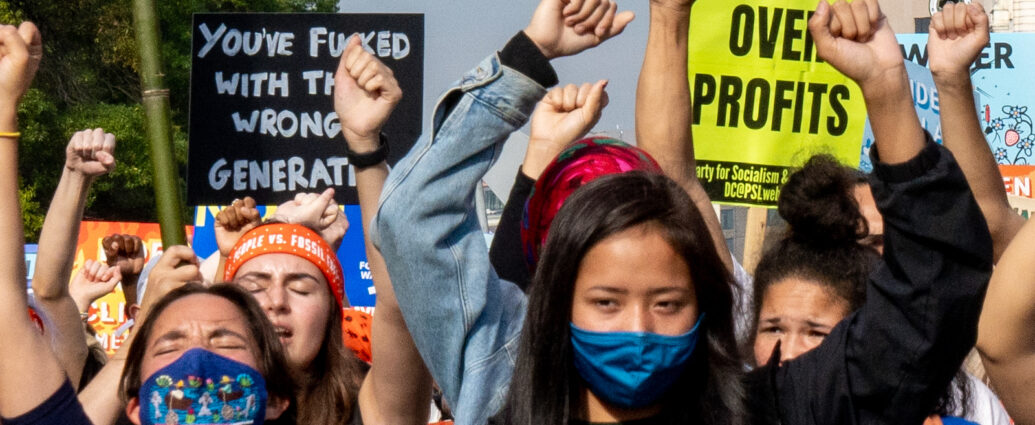Neve Dawson
Between 50,000 and 75,000 climate activists marched the streets of New York City on Sunday, demanding an end to fossil fuels.
Predicted to be the largest climate march since the COVID-19 pandemic, the protest aimed to bring about long-lasting changes to the US’ climate commitments.
Over 75,000 people marched in support of ending fossil fuels in New York City. This was the largest climate protest in the United States since the pandemic — and this is just the start!
Take action: https://t.co/la22KfdFJK#MarchToEndFossilFuels pic.twitter.com/eQQgxuEvE0— Sierra Club (@SierraClub) September 21, 2023
New York’s Climate Protest
The march coincides with the UN General Assembly Global Development Goals meeting from September 18th-19th, and the UN Climate Ambitions Summit on September 20th.
UN Secretary General António Guterres has described the summit as a “no nonsense” meeting, committed to highlighting new measures and steps to be taken to protect the environment.
In June, Guterres warned that countries must begin to phase out coal and fossil fuels to avoid the catastrophic consequences of climate change. According to the UN, carbon emissions must be reduced by 45 per cent by 2030.
Many have criticised President Biden’s failure to attend the summit as further evidence of his inadequate response to the climate crisis. This follows his recent expansion of gas facilities in the Gulf of Mexico and enabling of oil drilling projects.
The protest in New York also aligned with over 650 other global climate actions that took place earlier this week, including Sunday’s protest in Germany, which saw activists spray orange paint onto the Brandenburg Gate in Berlin.
Climate activists covered Berlin's iconic Brandenburg Gate with orange paint using fire extinguishers as giant spray cans: pic.twitter.com/ZaakpBmn81
— DW News (@dwnews) September 19, 2023
The New York climate protest was also attended by NYC democrat Alexandria Ocasio-Cortez, who called out the US’ continued involvement with fossil fuel projects, as seen earlier this year with Biden’s commitment to the Willow Project in Alaska: “The United States continues to be approving a record number of fossil fuel leases and we must send a message, right here today.”
She said that despite record profits, the support for the fossil fuel industry was “starting to buckle and crack.”
What does this mean for the US?
The US has a long history of fossil fuel investment, and climate activists have had enough. Event organisers wanted to kick off climate week with a message: they want more action to be taken.
“I think it’s a real restart moment after the pandemic for the big in-the-streets climate movement. It’s good to see people get back out there,” said environmental activist Bill McKibben.
As a founder of the Third Act, an activist group aimed at elders, McKibben was “glad to see there’s a lot of old people here like me.”
Following and during the climate protest, up to 150 individuals were arrested, notably including Idaho school board member Shiva Rajbhandari. The activist responded that “playing by the rules has never worked.”
“Storms are raging stronger. Fires are hotter. Floods are more severe, heat waves more deadly, and nothing has changed,” she said.
In response to the aggression faced by activists, Rev Lennox Yearwood, head of the Hip Hop Caucus, compared the climate protests to the fight for racial justice in the US. “We’re at our lunch counter moment for the 21st century,” he said.
“We need to end fossil fuels in all forms.”
READ NEXT:
-
AUSTRALIAN MINING TYCOON THREATENS TO PULL UK INVESTMENT OVER OIL RUSH
-
ENVIRONMENTAL GROUPS WARN RISHI SUNAK OVER CLIMATE BACKSLIDING
-
MINISTERS ACCUSED OF ENVIRONMENTAL CRIMES OVER OIL DRILLING
Featured image courtesy of Victoria Pickering via Flickr. No changes were made to this image. Image license found here.

